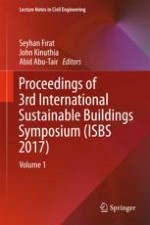2018 | OriginalPaper | Chapter
A Study on the Using of Game Theory in Sustainable Construction
Authors : Pınar Usta, Serap Ergün, Sırma Zeynep Alparslan Gök
Published in: Proceedings of 3rd International Sustainable Buildings Symposium (ISBS 2017)
Publisher: Springer International Publishing
Activate our intelligent search to find suitable subject content or patents.
Select sections of text to find matching patents with Artificial Intelligence. powered by
Select sections of text to find additional relevant content using AI-assisted search. powered by
